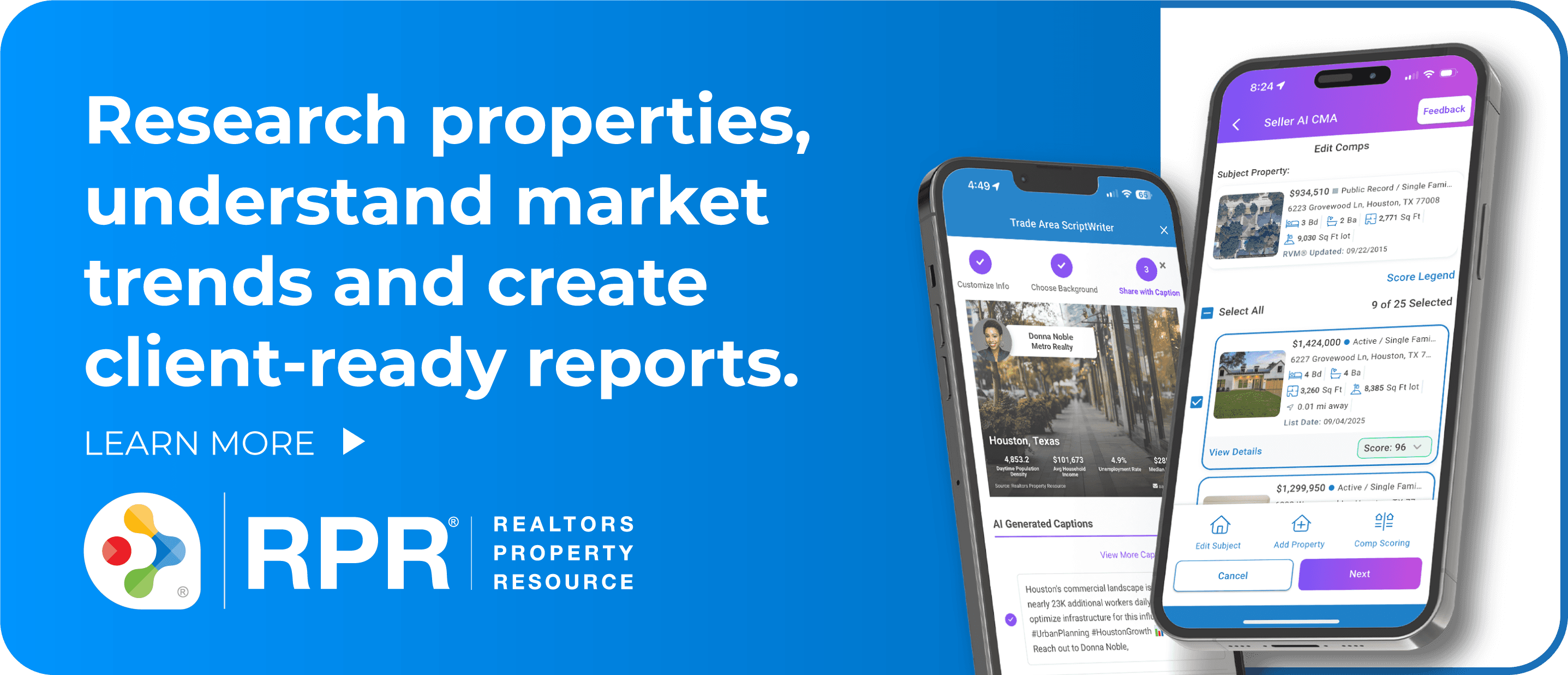
The pace at which technologies like iBuyers and artificial intelligence are reshaping the real estate industry is only going to speed up. But that’s no reason to fear for your livelihood. While these innovations will simplify the home buying and selling process, they won’t change your role as an adviser helping clients understand their home sale options. In fact, technology—devoid of emotion—stands in stark contrast to your strongest value proposition to consumers: bringing human compassion to the transaction.

That was the takeaway Wednesday at the National Association of REALTORS®’ second annual Innovation, Opportunity & Investment Summit in Seattle. The conference, designed to facilitate collaboration between real estate professionals, product developers, and investors, brings industry thought leaders together to discuss the future of the real estate business amid technological disruption. “Technology is an opportunity, not a threat,” NAR CEO Bob Goldberg said in opening remarks, echoing the public sentiments of the late Apple founder Steve Jobs. “Change and opportunity go hand in hand.”
A Fiercer, Faster-Paced Future
But what if the most radical prophecies for how technology will transform real estate are borne out? In a session focusing on the five-year outlook for technology trends, Stefan Swanepoel, chairman and CEO of T3 Sixty and publisher of the annual “Swanepoel Power 200” list, predicted online portals will streamline AI tools for house hunters. Marilyn Wilson, founder and managing partner of WAV Group, posited that Amazon, which launched a homebuying program in partnership with Realogy in July, will become the nation’s largest brokerage. And Brad Inman, founder and chairman of Inman News, said iBuyers like Opendoor—which has made significant inroads in Phoenix and other markets—likely will command as much as 50% of the national real estate market.
“I used to think iBuyers weren’t going to go anywhere,” Inman confessed. “I can’t tell you how many smart people I know laughed at iBuyers, but now it’s cooked into the industry. They are changing the old system—and I think we can all admit that the old system needs to be rebuilt.”
This transitional phase is a good thing for the industry as it determines which innovations will bring lasting, positive change to the market, Wilson said. The most helpful technology will be “painkillers” for consumers and real estate professionals, not “vitamins” promising a revolution—but delivering a mere upgrade to the consumer experience. “What I love about real estate is it’s a bunch of cowboys and cowgirls,” she said. “There are brokers who are making a ton of money off of leads from iBuyers, and when it’s time for a change, we’ll figure it out. That’s what I love about real estate: We’re survivors.”
Goldberg cautioned the audience to consider the difference between disruptors and innovators. Disruptors, he said, are forces outside the industry that simply want to upend the traditional real estate model. Innovators, on the other hand, are already in the industry and focused on improving the efficiency of the business, not turning it on its head.
Swanepoel added that the industry would be wise to give infant technologies a chance to grow and evolve. “The industry finds itself in a position of being willing to entertain other models, and many companies are trying different ways of achieving what already exists,” he said. “The iBuyer, for example, is yet another tool in the toolbox. At a certain time, this concept may be appealing, and then there will be another one and another one. Think of what’s happening today as ‘version one.’”
Where You Fit In
All of this innovation in real estate—or “proptech” as it has come to be known—enables you to invest more in building relationships, which technology can’t do. But that doesn’t mean technology startups aren’t trying. In another session Wednesday, product developers spoke to the way technologists could connect better with their customers, and many of the lessons are applicable to real estate practitioners. Molly McKinley, founder and CEO of Intentionaliteas, an herbal tea gift company helping agents and brokers create more touch points with clients, said authentic connections can create advocates among customers. “If you are creating those moments of ‘I see you,’ you are creating an advocate that will help your brand come to life,” she said. “This is good, old-fashioned emotional intelligence. You can’t fake serving a customer’s needs.”
“Market reports and all that are great value for your customer, but they don’t build relationships,” added Kori Covrigaru, CEO of PlanOmatic, a Denver-based real estate photography service. “Ask clients for feedback sooner in the process, and listen to what they have to say. Listening—truly listening—is one of your best tools.”
Product developers, much like real estate professionals, must find their niche, McKinley said. Agents can learn from her advice: “It’s so noisy out there that you will never break through if you try to be all things for all people. Find out the one thing you are trying to solve, and be really clear about that. It’s about discipline. You must say the same thing over and over until you’re exhausted by it, and that’s when it will resonate with your audience.
That takes courage, said Chris Bashinelli, filmmaker and TV host of PBS’s “Bridge the Gap,” which documents cultural differences around the world. In a motivational speech, Bashinelli said courage is defined as the action a person takes in the face of fear. “We can take a challenge and close down into a little ball, or we can have courage and step in the direction that frightens us,” he said. “It’s not so important what’s happening externally. The change has to happen within us. If you don’t believe in your own value, you have nothing to offer.”
Bashinelli also encouraged the audience to eschew the philosophy to “think globally and act locally.” To build trust with your customers, you have to keep your focus on the community that affects them, he added. “We have to think locally and act locally to really touch people.”








